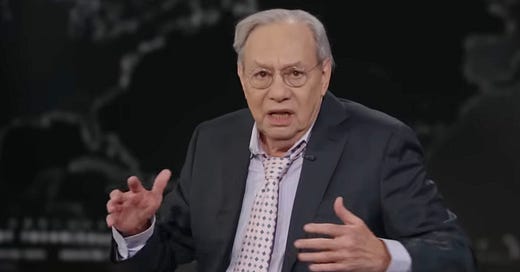Debating Different Realities
"Neuroscience shows us that we all create our own concept of reality." Psychology Today
At the Kennedy Center last night, we were thoroughly entertained by comedian Lewis Black. Among the many life challenges he ranted about was the new degree of difficulty around writing comedy when people are operating inside totally different realities.
Who knew? Lewis unlocked the key to one of societies most important challenges.
He suggested that we no longer debate policy differences. We debate entirely different realities.
Using my favorite research assistant this morning, Google, I explored this topic and found this statement in a Psychology Today article:
“While [a story above] certainly can make us question our view of reality, it also points to a practical application for leaders. If the mind works by telling stories, stories might be a way to change the mind. And if we change the mind….we change the world.”
Two sources confirmed what has troubled me as I encounter thoughtful people who quite literally live in and accept a reality totally different from the one I and many other thoughtful people accept.
It is entirely appropriate, as an example, to view the campus unrest these past few weeks and embrace different policies for addressing it. But, in comments challenging points made this week about the non-student activists, some people with a lot of experience dating back to the 1960s are hyper-critical of any notion that students might have been influenced by outside forces. Suggesting vandalism and encampments are an appropriate approach to bringing about changes in U.S. policy.
And, of course there are those who seem unfazed by a candidate for the presidency facing dozens of felony counts who sits in court day after day mounting a defense against hush money payoffs believing he is a victim of our justice system. Others, find the actions disqualifying.
Turns out, competing realities make it not only difficult for comedians to write jokes, the all too evident phenomenon makes honest and constructive dialogue difficult as well.
The coarseness of public debate stems less from disagreeing only about policy, rather the source of far too much conflict seems indeed to come from people listening to, believing and telling stories that shape their reality taking them to a place removed from others who have found their separate reality.
One person asked me this week during a live version of our From & Fuller program with Dave Wheelan at The Spy, how we could return to discussions based on a common set of facts. This certainly seems like the right question and a good antidote to the multiple reality quandary. The real challenge, of course, is settling on whose fact-based reality we wish to accept.
My view is that in the past we have accomplished much when strong leaders work together get a significant majority to accept a common set of facts even if debate on policies remains. So, it would seem, the search for strong and effective leadership becomes more and more essential; and, if not in this election, then soon!






Craig says:
... Using my favorite research assistant this morning, Google, I explored this topic and found this statement in a Psychology Today article:
“While [a story above] certainly can make us question our view of reality, it also points to a practical application for leaders. If the mind works by telling stories, stories might be a way to change the mind. And if we change the mind….we change the world.”
... Turns out, competing realities make it not only difficult for comedians to write jokes, the all too evident phenomenon makes honest and constructive dialogue difficult as well.
The coarseness of public debate stems less from disagreeing only about policy, rather the source of far too much conflict seems indeed to come from people listening to, believing and telling stories that shape their reality taking them to a place removed from others who have found their separate reality.
One person asked me this week during a live version of our From & Fuller program with Dave Wheelan at The Spy, how we could return to discussions based on a common set of facts. This certainly seems like the right question and a good antidote to the multiple reality quandary. The real challenge, of course, is settling on whose fact-based reality we wish to accept.
My view is that in the past we have accomplished much when strong leaders work together get a significant majority to accept a common set of facts even if debate on policies remains. So, it would seem, the search for strong and effective leadership becomes more and more essential; and, if not in this election, then soon!"
By that definition found by Craig, perhaps you could say that Barack Obama and Ronald Reagan were strong leaders because they marshaled a common set of realities believed in by enough citizens to accomplish their key policy goals. But were those realities real and their resultant policy goals wise. Would Lenin and Stalin qualify for "strong and effective leaders" under this test as well. How do we sort our the real from illusion?
To try to answer this question, I suggest book The User Illusion by Tor Norretranders, and The Matter with Things by Iain McGilchrist, as well as writings generally of Reinhold Niebuhr.
As as side note, I would include faculty and their ideology among outside influences on these misbehaving protesters today.